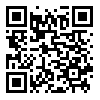2- Islamic Azad University of South Tehran Branch
Global expansion and diversification of think tanks has demonstrated their potentials to affect public policy and administration as well as development management in different countries. The purpose of this research is to examine the challenges of think tanks in Iranian government agencies from 2007 to 2016. The data gathering technique was descriptive and survey oriented; besides, it was an applied, quantitative-qualitative research. Experts in think tanks composed the population of the study, from among of whom 15 subjects were selected as the sample. To collect data, structured and semi-structured questionnaires were used. Data analysis using Fuzzy Delphi method, suggests that the Iranian think tanks are faced with eight major challenges including: lack of theoretical knowledge, lack of appropriate client for ideas, lack of proper training, organizational ineffective structures not giving way to new ideas to bring about change, senior managers’ feeling of superiority and disregarding new ideas, absence of clear orientation and strict policy-making, lack of clear strategies, and lack of willingness among senior managers to support think tanks.
Received: May 22 2017 | Accepted: May 16 2018 | ePublished: May 16 2018
| Rights and permissions | |
 |
This work is licensed under a Creative Commons Attribution 4.0 International License. |



